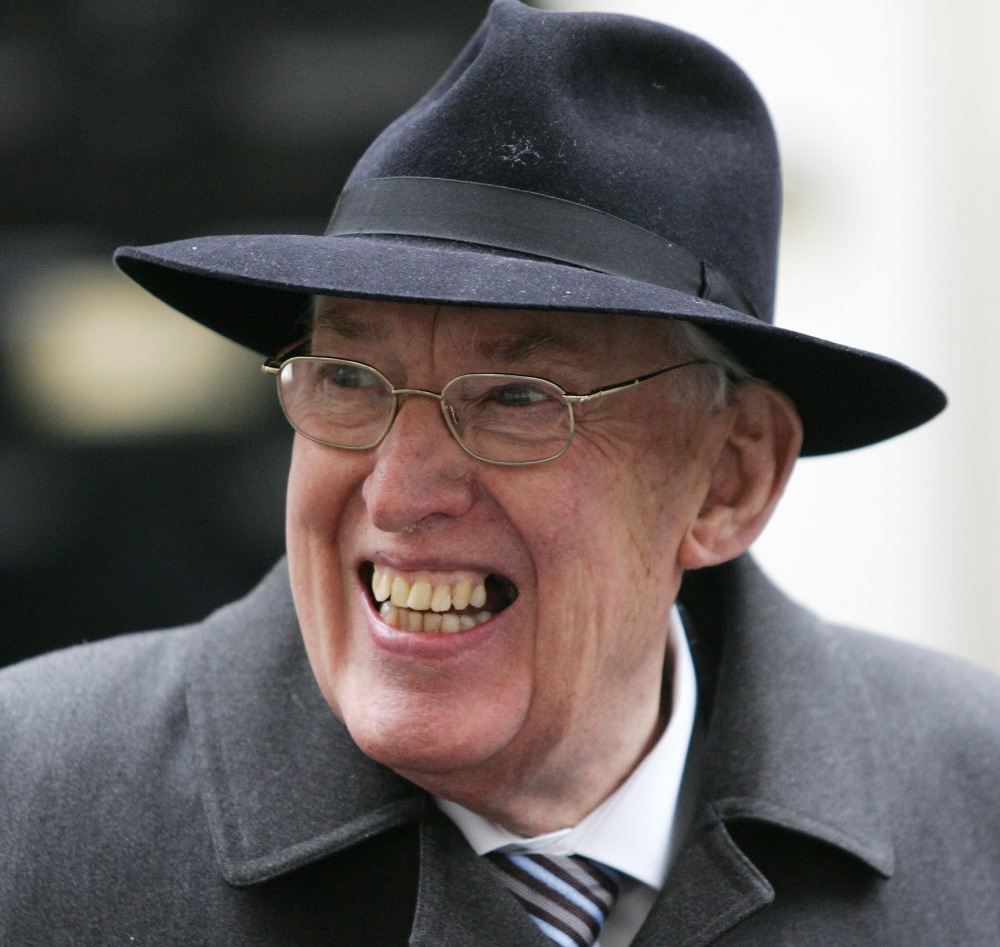DUBLIN —The Rev. Ian Paisley, the Protestant firebrand who devoted his life to thwarting compromise with Catholics in Northern Ireland only to become a pivotal peacemaker in his twilight years, died Friday in Belfast. He was 88.
Paisley’s blistering oratory in sermons and street protests was blamed for fueling four decades of bloodshed that claimed 3,700 lives.
Yet at the zenith of his peace-wrecking powers, Paisley in 2007 stunned the world by delivering the province’s first stable unity government between its British Protestant majority and Irish Catholic minority. “Dr. No” finally said yes – and his powerful U-turn cemented a peace process that he had done so much to frustrate.
“Ian was a man of deep convictions. The convictions never changed. But his appreciation of the possibilities of peace, gradually and with much soul-searching, did,” said former British Prime Minister Tony Blair.
FOUNDED CHURCH, PARTY
Paisley founded his own church and party to promote his strident views. His Free Presbyterian Church of Ulster labeled the pope as the antichrist and lambasted mainstream Protestants as ecumenical Judases. His Democratic Unionist Party insisted that Northern Ireland’s union with Britain could tolerate no concessions to Irish nationalists.
Backed by the menace of Protestant mobs, Paisley confronted 1960s Catholic civil rights marches. He sought the military destruction of the Irish Republican Army and, a generation later, denounced the U.S.-brokered Good Friday peace accord of 1998 as a capitulation to the IRA’s Sinn Fein party.
Protestants rallied behind him with such fervor that no peace initiative could last without his support. Over and over, he torpedoed efforts at compromise and shortened the careers of moderate Protestant leaders from the rival Ulster Unionist Party.
MOST POPULAR POLITICIAN
Unquestionably Northern Ireland’s most popular politician, Paisley topped more than a dozen votes in elections to the British and European parliaments. He held seats simultaneously in London and Brussels for a quarter-century.
An IRA cease-fire in 1997 opened the door for Sinn Fein leaders to enter talks on Northern Ireland’s future. Blair welcomed Sinn Fein, and the Ulster Unionists reluctantly stayed at the table. Paisley’s DUP bolted.
The Good Friday pact expected Sinn Fein to receive seats in a coalition government, and the IRA to disarm fully by mid-2000. Troublingly, it didn’t explicitly link those goals.
When the IRA insisted it wouldn’t surrender arms, Paisley crowed his vindication as the Ulster Unionist-led government unraveled and collapsed in 2002. The Democratic Unionists won most seats in the next Northern Ireland Assembly, cementing Paisley’s veto over resumed power-sharing.
Paisley declared there wasn’t “a snowball’s chance in hell” he’d work with Sinn Fein unless the IRA surrendered all weapons publicly.
The IRA in 2005 disarmed and renounced violence. Sinn Fein in 2007 voted to support the police, accepting Northern Ireland’s legal legitimacy for the first time.
Send questions/comments to the editors.



Success. Please wait for the page to reload. If the page does not reload within 5 seconds, please refresh the page.
Enter your email and password to access comments.
Hi, to comment on stories you must . This profile is in addition to your subscription and website login.
Already have a commenting profile? .
Invalid username/password.
Please check your email to confirm and complete your registration.
Only subscribers are eligible to post comments. Please subscribe or login first for digital access. Here’s why.
Use the form below to reset your password. When you've submitted your account email, we will send an email with a reset code.